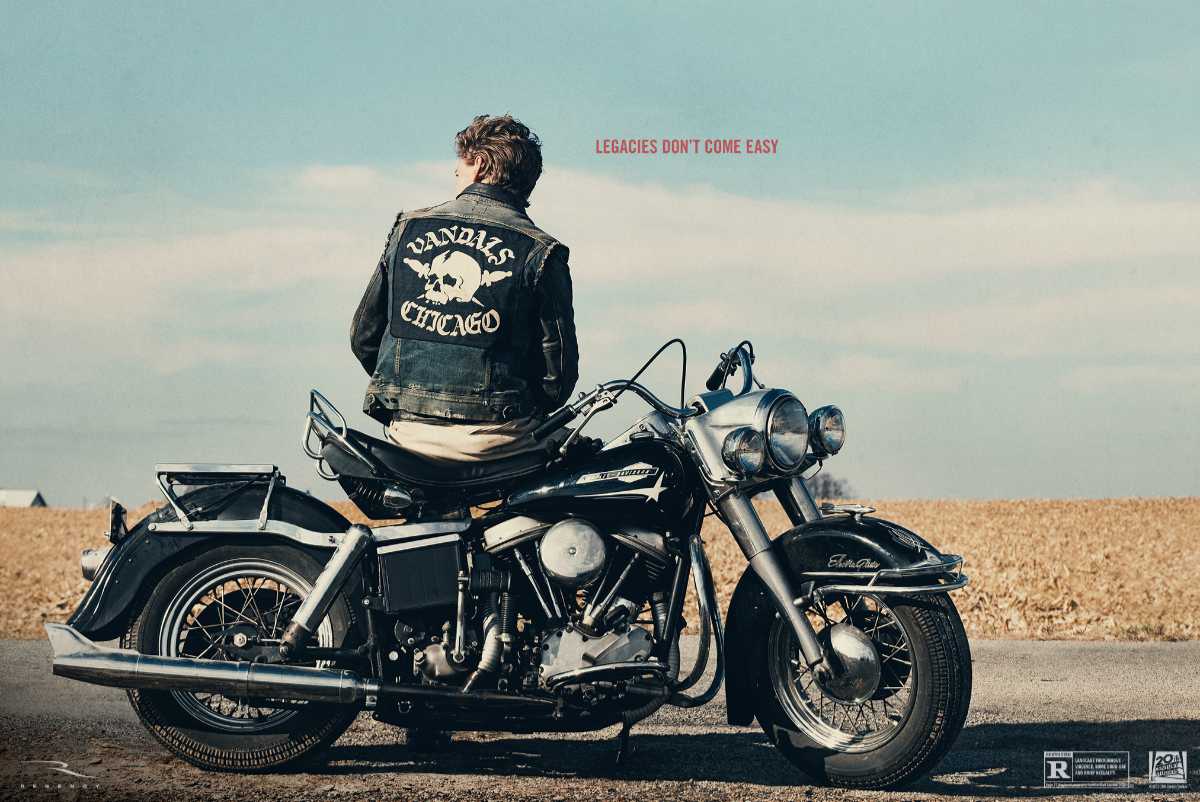Loosely inspired by Danny Lyon’s photo book of the same name, Jeff Nichols’ The Bikeriders tells a fictional story set in 1960s Midwest America of a group of bikers who would come to form a group called the Vandals. A film of brotherhood and masculinity, the film traverses the evolution of a local gathering of like-minded people into a more sinister way of life, where gang lines are drawn by wheels in the mud. Starring Austin Butler, Jodie Comer, Tom Hardy, Mike Faist and Michael Shannon, The Bikeriders' glacial pace and underdeveloped characters prevent it from speeding to success.
With a rather loose source of inspiration, the world was Nichols’ oyster when creating The Bikeriders, with the writer-director reportedly kicking around the idea of a 60s-set biker film for years. With a crop of tantalising themes at its wheelhouse, it’s clear what compelled Nichols to explore this often hidden subsection of America. But despite an open road to travel, The Bikeriders spends the whole runtime searching for a gear to kick into its never close-to finding, underserved by an emotional resistance that hinders its characters and storytelling to damning, occasionally boring effect.
A nicely shot, comfortably directed picture, Nichols' direction is undeniably reliable, utilising iconography and locations to strong effect. An artist who knows how to make the important moments stick the landing, there are a strong handful of impressive techniques and sequences that bolster his filmmaking. Matched with some strong editing by Julie Monroe, David Wingo’s suitably swelling score and a soundtrack of era and tone-appropriate 60s hits, this is no doubt a competently made effort from a team of talented artists.
But on the screenplay front, the engine splutters. The Bikeriders' most significant flaw is reflected in a central conversation between Jodie Comer’s Kathy and Mike Faist’s photographer-interviewer, Danny: she explains that it was her father’s belief that men don’t cry and that she’s only seen her husband, Benny (Butler) shed a tear on one occasion - when he feared he could not ride again. He’s an emotionally closed individual, a disconnected product of his time - but if every character in this film refuses to show emotion, how is an audience expected to feel a meaningful connection to any of them? Comer’s relationship with Butler is intended to be the solid foundation from which the entire film is built - but we never get to know any of these characters, what attracts them to the lifestyle or, in Comer and Butler's case, each other, beyond an initial fascination and physical attraction. Instead, even Comer, expected to lead us to the heart of this story, feels like an outsider, leaving very little hope for the audience either.
It's through little fault of the ensemble that they cannot rip these characters from the page. Austin Butler follows up with Oscar-nominated Elvis turn with a performance that, at best, will solidify his rising star, if unable to represent another career-high so soon after the last. He's hindered by the character's mindset of 'men don't cry', and while his brooding turn is an enigmatic quality to have, he's unable to take it beyond the surface level on more than a small handful of occasions. Likewise, this will not go down as a defining performance in Comer's sturdy career, but it once again demonstrates an ability to transform that will continue to drive her career onwards and upward. Tom Hardy's accent wobbles but it's a stoic lead turn and Mike Faist is bitterly underutilised in digging out the character's deeper thoughts and emotions.
The Bikeriders is stifled by a refusal to emote, never able to overcome the very challenges of toxic masculinity and the absent emotion it seeks to portray. A uniformly solid ensemble can try with all their might, but Nichols' underwhelming, undercooked and distantly cold screenplay trips up even his own direction and team, the hang-out vibe and undefined characters causing it to stall early on in the journey.
